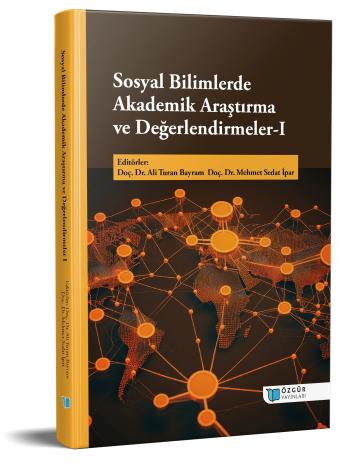
Nüfus ve Planlama
Şu kitabın bölümü:
Bayram,
A.
T.
&
İpar,
M.
S.
(eds.)
2023.
Sosyal Bilimlerde Akademik Araştırma ve Değerlendirmeler - I.
Özet
Nüfus, belirli coğrafi sınırlar dahilinde bir arada yaşayan bireylerin toplam sayısı olarak tanımlanabilir. İnsanların yaşam için uygun alanlara erişimleri kısıtlıdır; bu nedenle, yaşam kalitesini yükseltmek ve kaynakları en uygun şekilde kullanmak için nüfus planlaması kritik bir öneme sahiptir.
Demografi, gelecekteki ekonomik, sosyal ve çevresel trendlerin hem sebeplerini hem de sonuçlarını etkileyen önemli bir faktördür (O'neill et al., 2001). Global ölçekte gerçekleşen birçok değişiklik, doğrudan veya dolaylı olarak nüfus dinamikleriyle bağlantılıdır. Örneğin, iklim değişikliği, enerji talebi, kentleşme, ulaşım sistemleri, tarım ve gıda güvencesi, fakirlik gibi birçok konu, nüfusun evrimiyle yakından ilişkilendirilebilir. Nüfus artış hızının en yüksek olduğu ülkeler genellikle ekonomik olarak daha dezavantajlıdır. Bu durum kaynakların sınırlı olması ve nüfus artışının bu kaynakların üzerinde oluşturduğu baskılarla doğrudan ilişkilidir.
Teknolojik ve ekonomik ilerlemeler tarihsel süreçte nüfus değişimlerini doğrudan etkilemiştir. İnsanlık tarihinin başlangıcında, göçebe yaşam ve avcılık gibi ekonomik aktiviteler nüfusun sınırlı olmasını gerektirmiştir. Avcı topluluklarının sınırlı kaynaklara erişimi, nüfusun kontrollü olmasını gerektiren bir durum yaratmıştır (Malthus, 1798). Bununla birlikte, tarımın başlaması ve yerleşik yaşama geçiş, nüfusun hızla artmasına neden olmuştur.
Sanayi Devrimi, nüfus artışında kritik bir dönüm noktası olarak kabul edilmektedir. 1850 yılında yaklaşık 1 milyar olan dünya nüfusu, günümüzde 7.8 milyara yaklaşmıştır, öngörüler 2030’da 8,6 milyar ve 2050'de 9,8 milyar insanın Dünya'da yaşayacağını belirtmektedir. Bu beklentiler, gelecekteki politikaların ve planların şekillendirilmesi için nüfus projeksiyonlarının hazırlanmasını zorunlu kılmaktadır. Nüfus projeksiyonları, kalkınma hedefleri, demografik planlama ve şehirleşme stratejilerinin oluşturulmasında temel bir araçtır.

